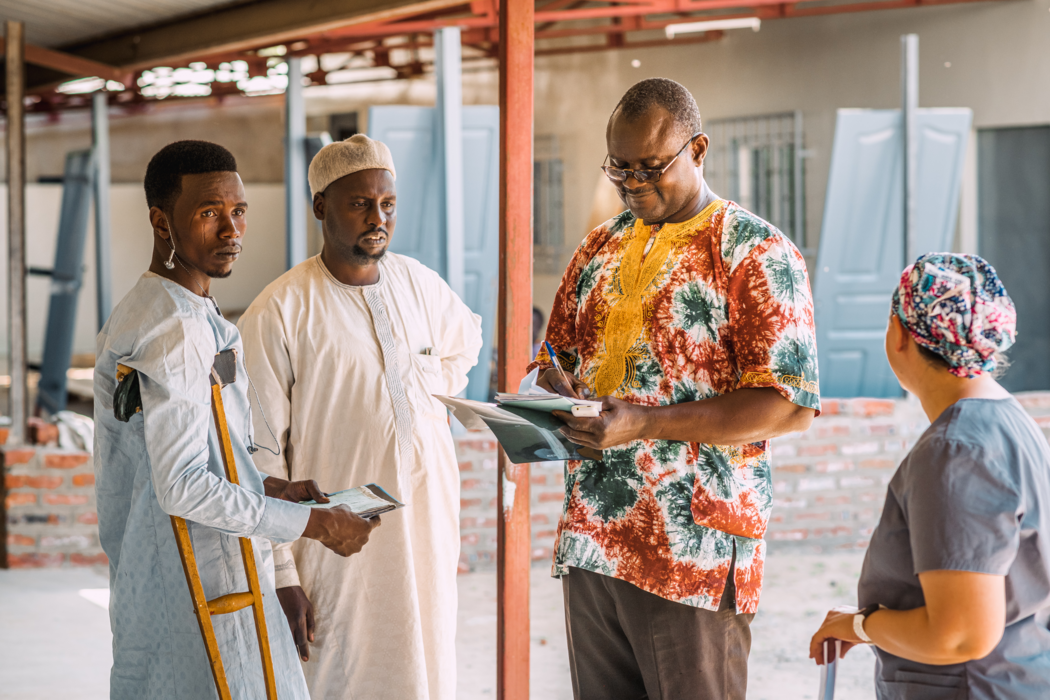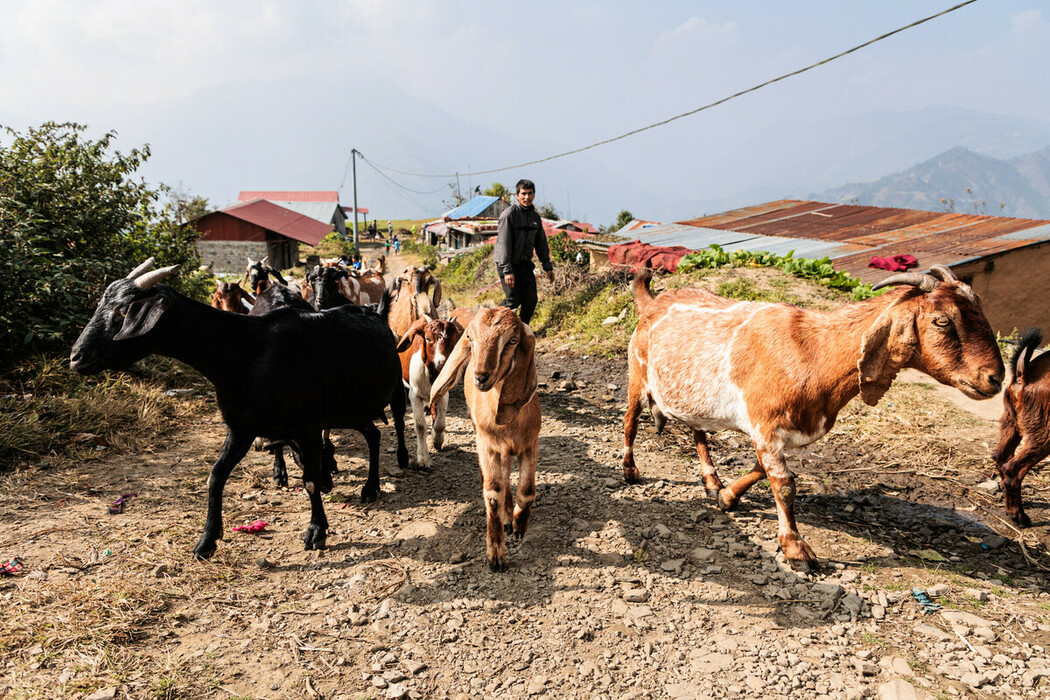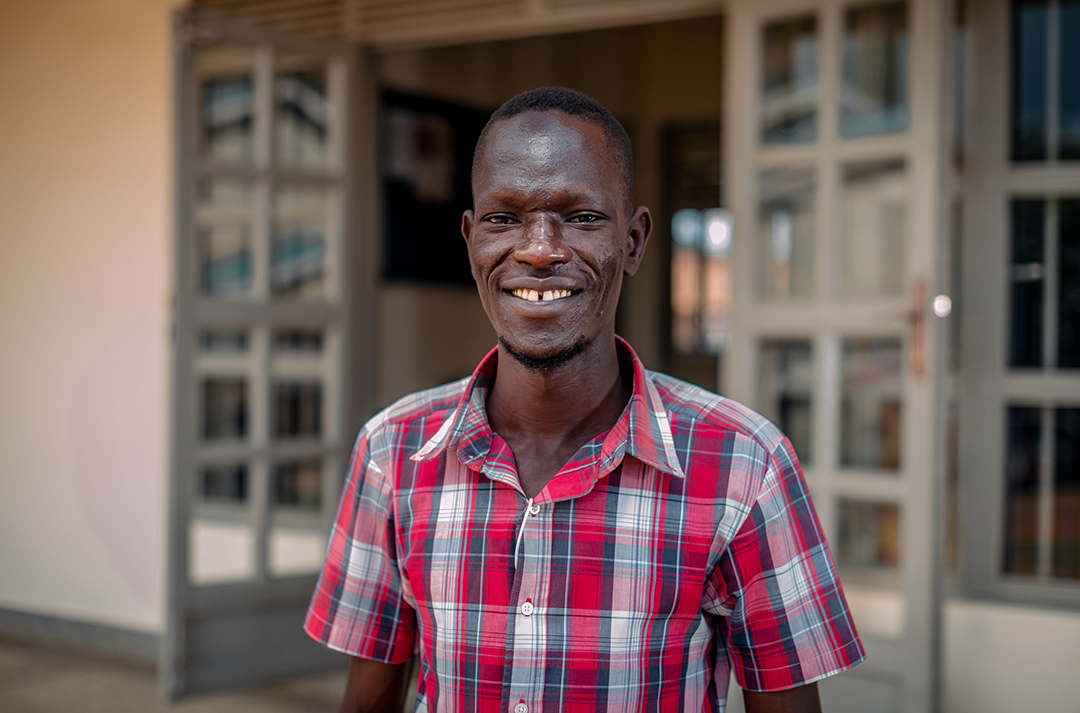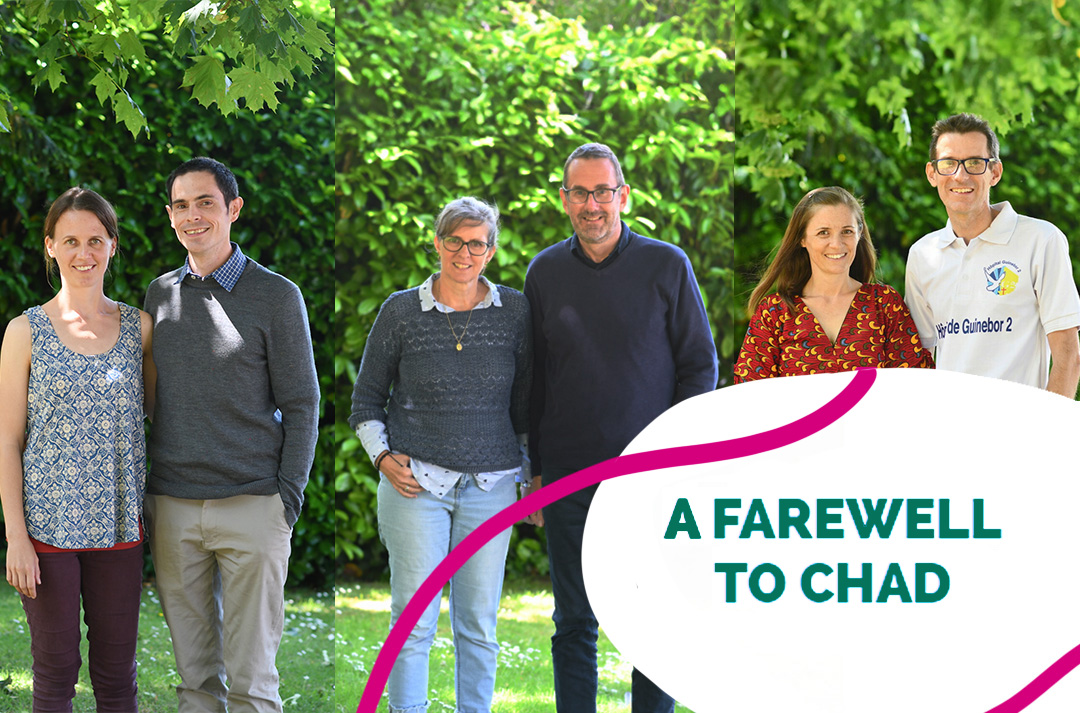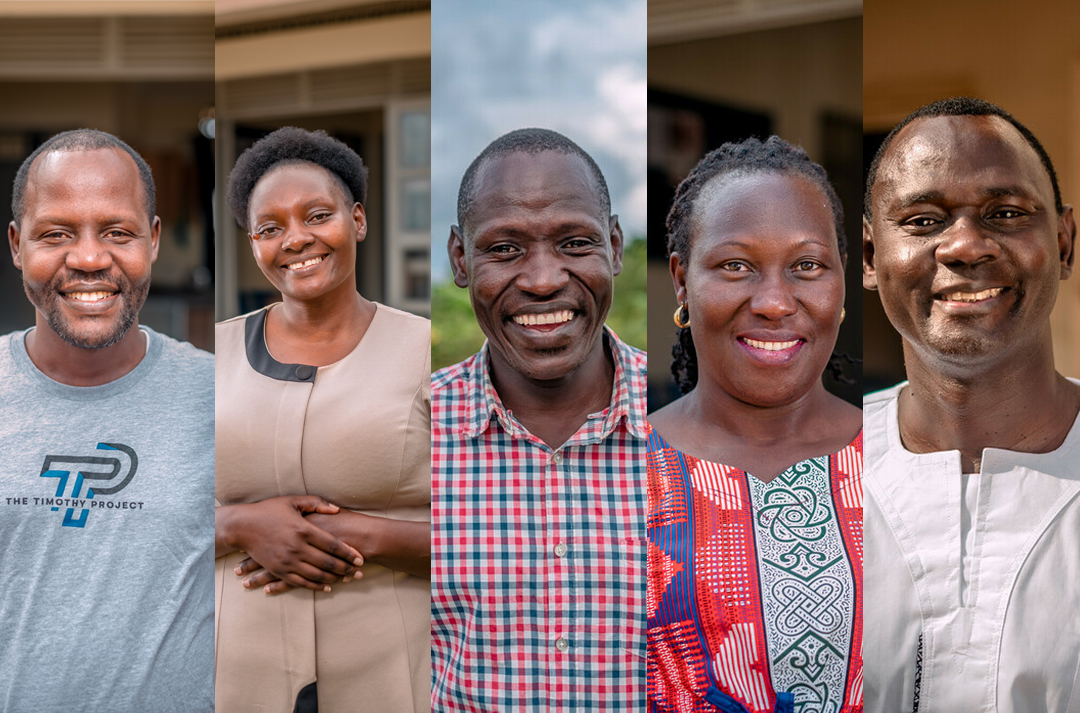Operation: Chad – one year on
What’s been happening at G2?
This is Operation: Chad, one year on. We’re taking you on a tour of some of the exciting new projects you’ve made possible at Guinebor II hospital
You wouldn’t have realised it from watching the Operation: Chad feature film, but BMS World Mission workers Mel and Tom Spears had really only just set foot on Chadian soil when we visited them in February 2020 with film cameras in tow! We were there to shoot our Harvest appeal, excited to tell their stories, and to see how their skills and experience would contribute to the vibrant life of Guinebor II (G2) hospital. And it wasn’t hard to do – it seemed to us as though Mel and Tom, along with their colleagues Bethan and Gareth Shrubsole, had all been there much longer, despite having only arrived in January 2020. Tom, who had worked as a General Practitioner in the UK, was already being called from patient to patient and treating people with conditions ranging from diabetes to cerebral malaria. And Mel was already imagining the shape her important work in public health might take, beginning with the community health of the villages that had grown up on the doorstep of G2.
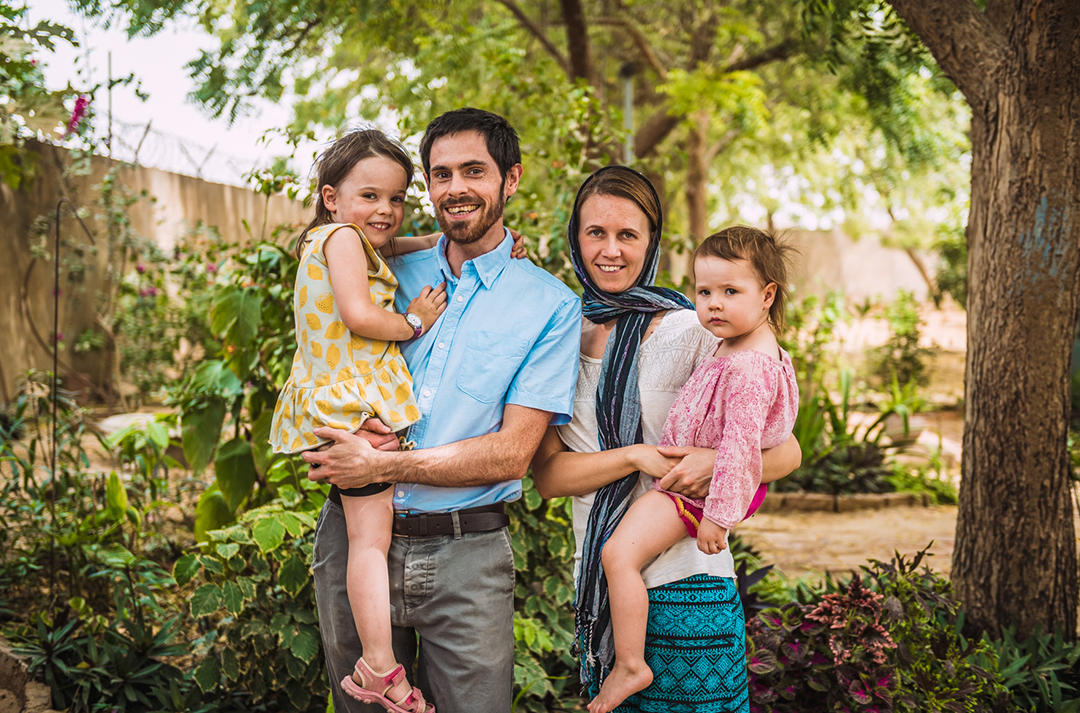
Knowing how much they had been able to do in the space of a few short weeks back then made us even more excited to check in with them. From new training sessions to a successful malnutrition treatment programme, we heard from Mel and Tom how the hopes and plans they shared with us have become a reality, one year on.
Cultural shifts
Mel’s plans for her work at G2 began by speaking to Achta. You may well recognise Achta from the Operation: Chad film – she’s the practitioner in charge of early years vaccinations. Achta’s experience of Chadian culture and the hospital’s current practices, coupled with Mel’s background in public health nutrition, proved the perfect breeding ground for new ideas. “I started seeing how malnutrition was being managed and finding out from Achta what she’d like to see change,” explains Mel. Together, they carried out a survey exploring infant feeding practices. It confirmed that many new mothers were being handed down a potentially dangerous practice of giving their babies too much water along with formula and breast milk. Sadly, the practice often stems from the fact that formula milk is expensive for so many Chadian families, and so parents add more water than is safe to make it go further.
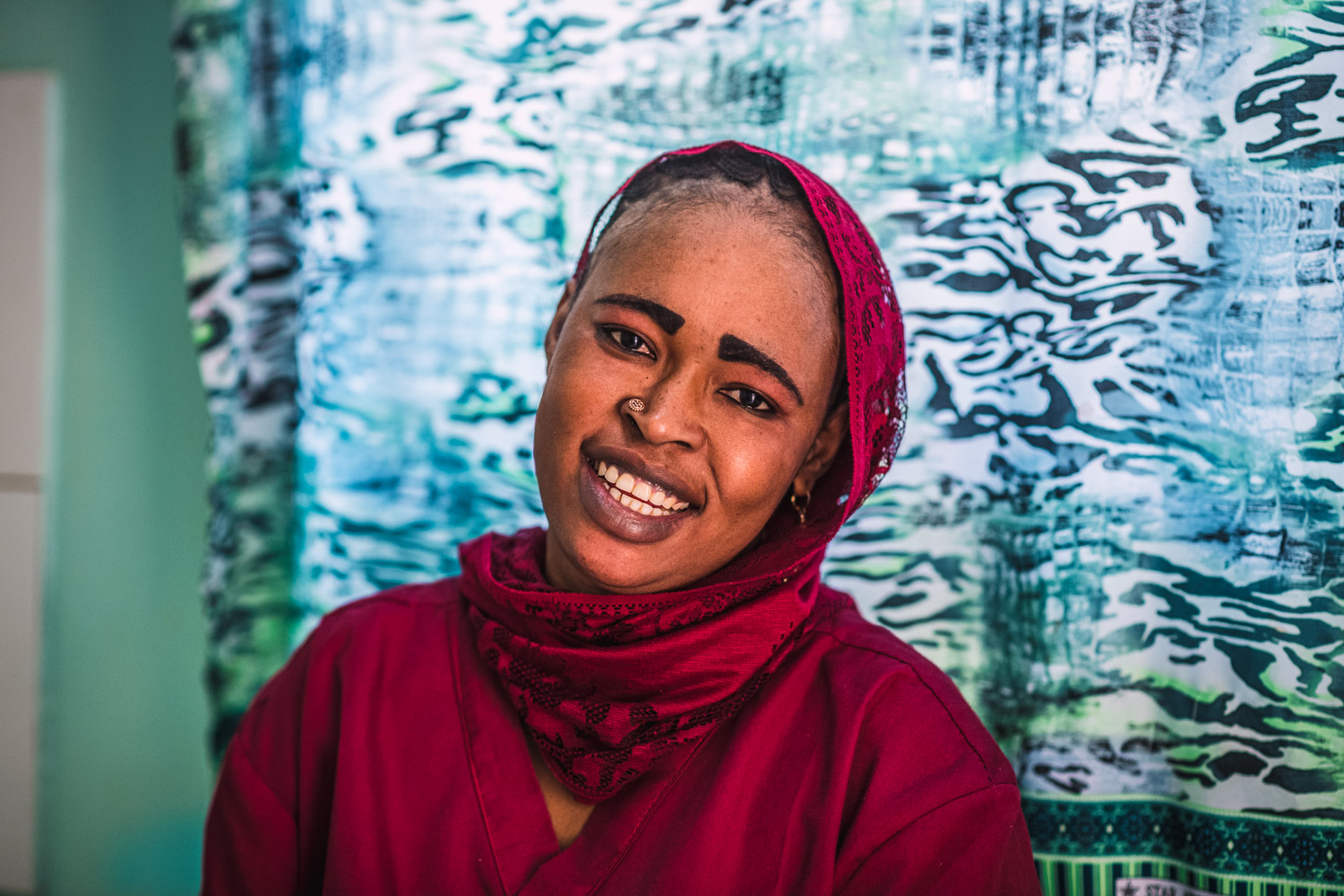
If babies continue to be given water, they lose the ability to regulate the amount of water in their cells, becoming almost comatose, Tom explains. They’ll soon recover if the practice is stopped – but if not, it will sadly prove fatal. “There’s a massive need for real investment in kind of a cultural shift, and how to change behaviour around that,” adds Mel. Extra training for the hospital’s midwives has already been proposed, so they can send mothers off with good advice from day one. And if children do start to grow up malnourished, with a lack of proper nutrients in their diet, Mel and Achta have been tackling that too.
Tackling malnutrition
Tom tells me that almost 30 per cent of children under the age of five in Chad are underweight, the seventh highest score in the world. So little Moussa’s case sadly wasn’t unusual. He arrived at the hospital clearly malnourished. His swollen limbs and diarrhoea displayed all the signs of the vicious cycle that is created by malnutrition: a nutrient-poor diet which leaves a child susceptible to infections that could become life-threatening. Luckily, after training put in place by Mel, medical staff can use a test to diagnose malnutrition that is as simple as measuring the circumference of the child’s upper arm.
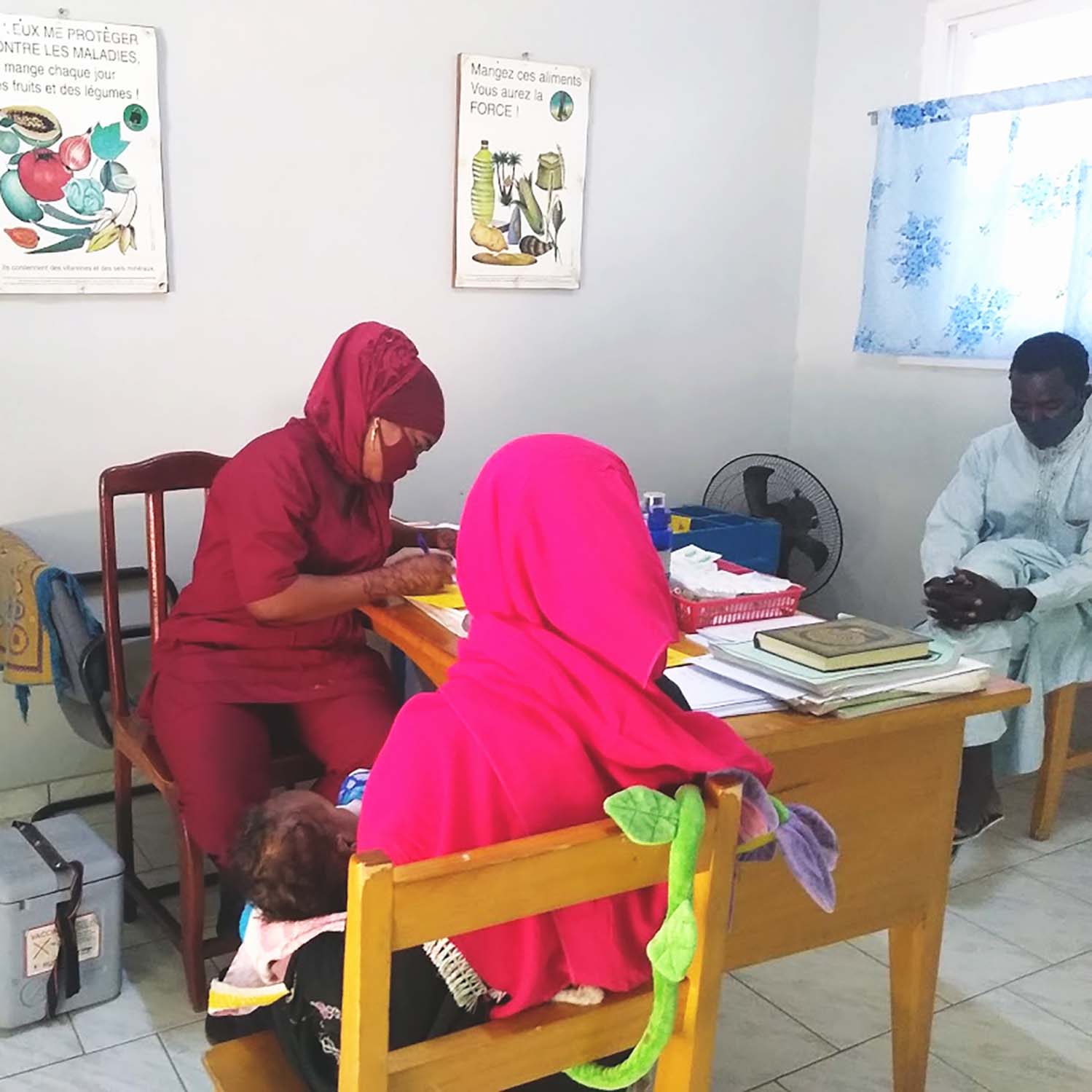
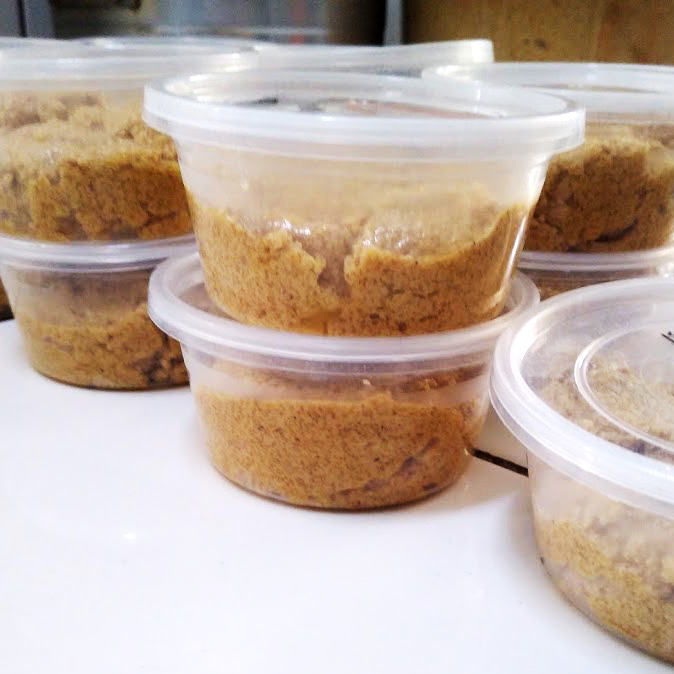
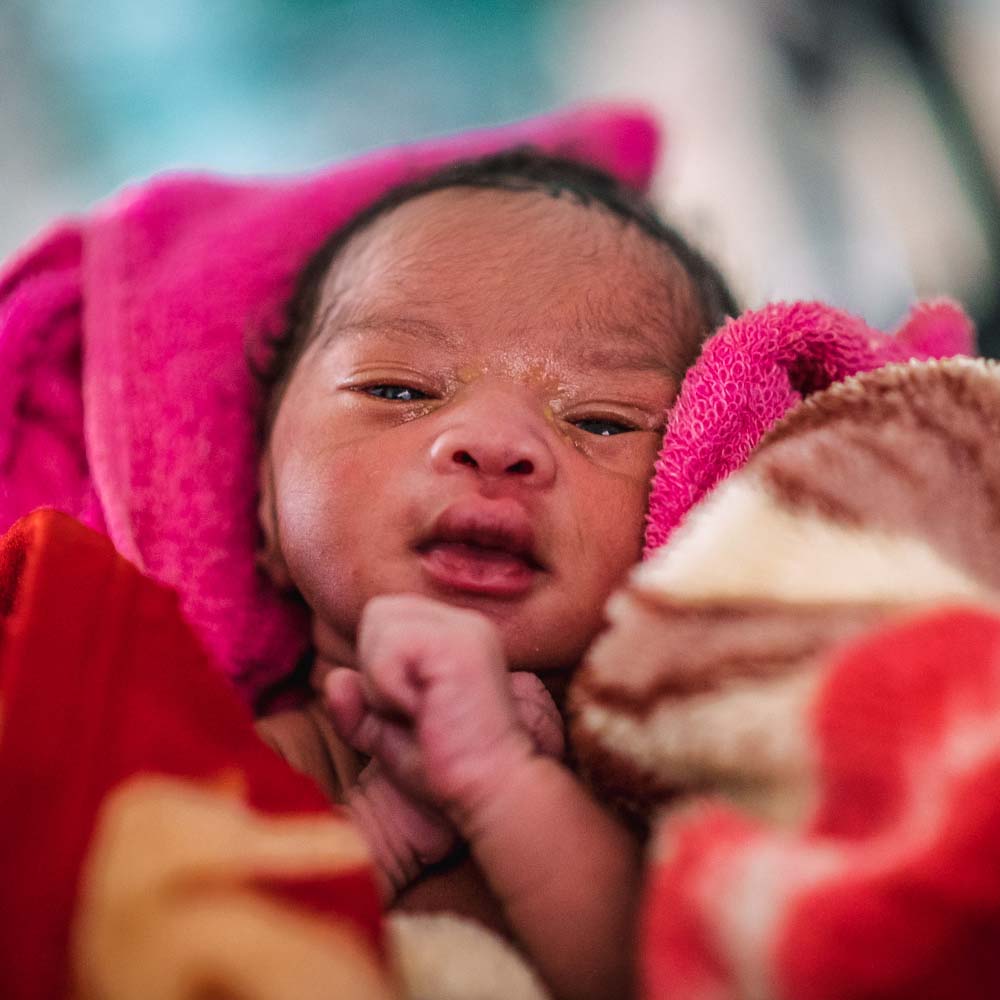
Moussa improved slowly as he received a nutrient-rich peanut supplement for malnutrition, and treatment for his infections. His swelling reduced and Mel and Achta were delighted when his weight began to increase again. Moussa’s family befriended others, sharing meals together on the hospital grounds. And they also became part of the community programme, with its weekly check-ups. “Achta recently sent me a photo of Moussa and his rounded face was unrecognisable,” says Mel.
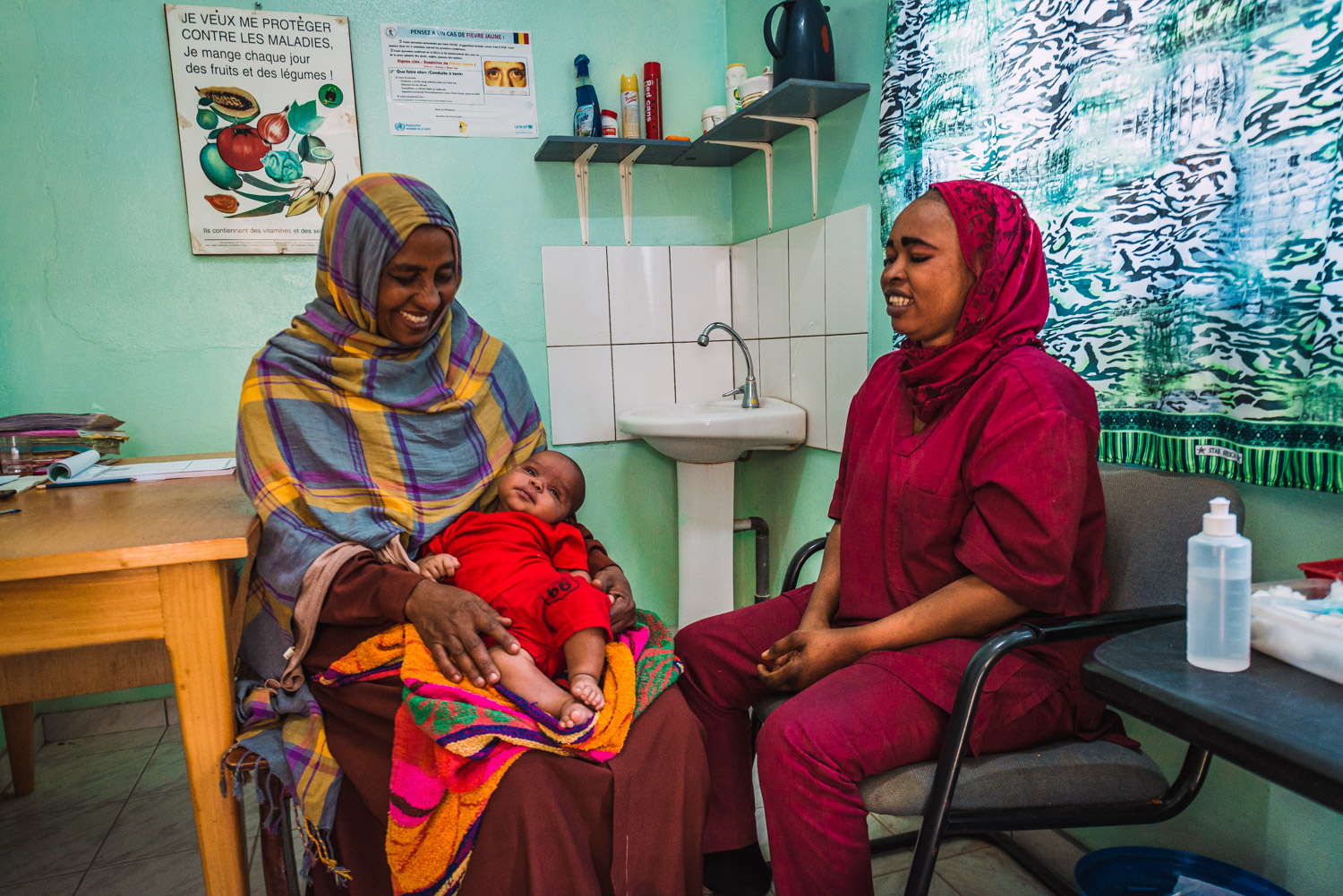
The difference the team are already making means you can’t help but feel excited for the future at G2. The team are looking forward to welcoming BMS nurse Jackie Chilvers, who will be giving additional support on the maternity wards. And having a team come alongside her has encouraged Achta too. She’s felt happier, more valued and more motivated, no longer tackling such massive needs alone. And with plans to take good public health practices into the community in 2022, we can’t wait to see what Mel and Achta do next.
You raised an amazing £301,823 for Operation: Chad, whether that was as church families coming together in wonderful harvest services, or as generous individuals, inspired by the healthcare you had received and wanting to give back. We’re so thankful for you all. If you missed the appeal, it’s not too late to give. Learn more about Operation: Chad right here.

Words by Hannah Watson
Editor of Engage, the BMS World Mission magazine

